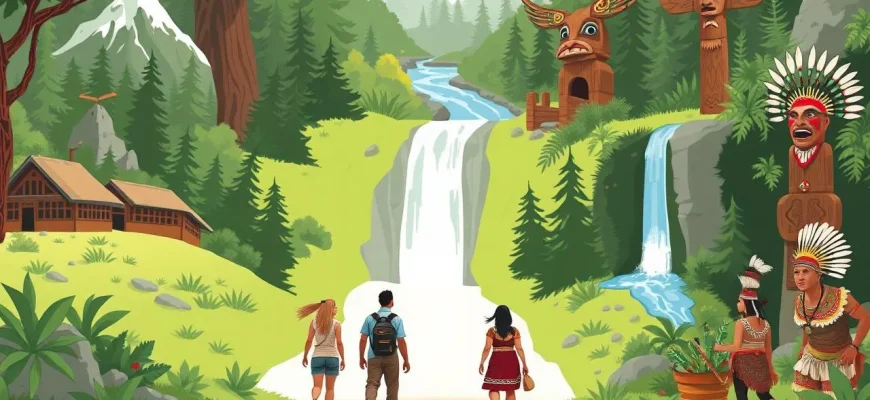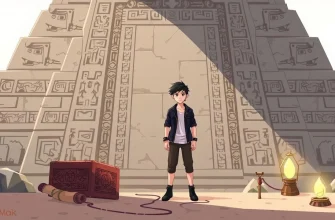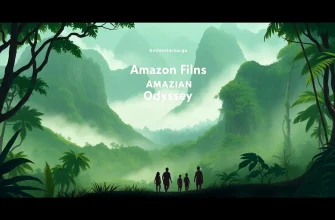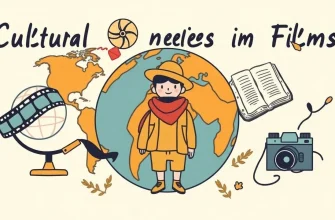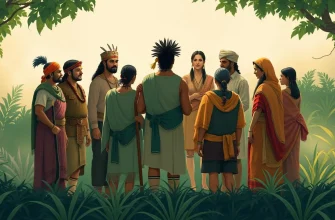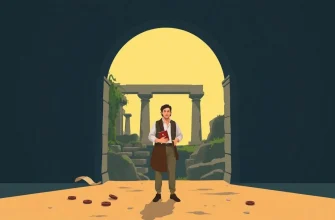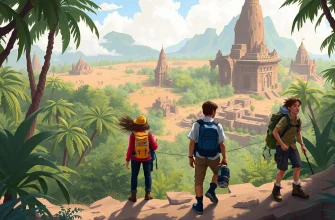Embark on a cinematic journey through the eyes of adventurers who find themselves among indigenous communities. These films not only offer thrilling narratives but also provide a window into the rich cultures, traditions, and landscapes of these often remote and untouched societies. This collection promises an escape into the heart of adventure, where the unfamiliar becomes familiar, and where every step is a story waiting to unfold.

The Last Wave (1977)
Description: An Australian lawyer, haunted by prophetic dreams, defends an Aboriginal man accused of murder, leading him into a world of ancient tribal lore and supernatural phenomena.
Fact: The film was directed by Peter Weir and explores themes of cultural misunderstanding and the clash between modern and traditional beliefs.
 Watch Now
Watch Now 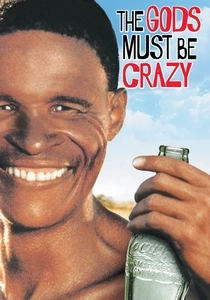
The Gods Must Be Crazy (1980)
Description: A comedy where a Bushman from the Kalahari Desert encounters modern civilization after a Coca-Cola bottle falls from the sky, leading to a series of humorous and enlightening adventures.
Fact: The film was a massive hit in South Africa and became one of the highest-grossing foreign films in the U.S. at the time.
 Watch Now
Watch Now 
The Mission (1986)
Description: Set in the 18th century, this film tells the story of a Jesuit priest who tries to protect a remote South American Indian tribe from Portuguese slavers and Spanish colonial forces.
Fact: The film features a score by Ennio Morricone, which won the BAFTA Award for Best Film Music.
 Watch Now
Watch Now 
Dances with Wolves (1990)
Description: A Civil War soldier, John Dunbar, is sent to a remote western outpost where he befriends a tribe of Lakota Sioux, learning their ways and becoming part of their community.
Fact: Kevin Costner, who starred and directed, won the Academy Award for Best Director, and the film was praised for its portrayal of Native American culture.
 Watch Now
Watch Now 
Black Robe (1991)
Description: A Jesuit priest journeys into the Canadian wilderness to reach a remote mission among the Huron, facing harsh conditions and cultural barriers.
Fact: The film was shot in Quebec and Ontario, with much of the dialogue in Algonquin and Mohawk languages.
 Watch Now
Watch Now 
Rabbit-Proof Fence (2002)
Description: Based on a true story, this film follows three Aboriginal girls who escape from a government camp where they were forcibly taken from their families, embarking on a 1,500-mile journey home along the rabbit-proof fence.
Fact: The film was directed by Phillip Noyce and features the real-life granddaughter of one of the women depicted in the story.
 Watch Now
Watch Now 
The New World (2005)
Description: This epic drama depicts the founding of the Jamestown, Virginia, settlement and the relationship between Captain John Smith and Pocahontas, offering a poetic exploration of cultural collision.
Fact: Terrence Malick's film was noted for its visual beauty and the performances of Colin Farrell and Q'orianka Kilcher.
 Watch Now
Watch Now 
Apocalypto (2006)
Description: Set during the decline of the Mayan civilization, a young man must escape human sacrifice and save his family, encountering various indigenous tribes along his perilous journey.
Fact: The film was shot in the Yucatec Maya language, and Mel Gibson, the director, aimed for historical accuracy in depicting the Mayan culture.
 Watch Now
Watch Now 
Walkabout (1971)
Description: A British film where a teenage girl and her younger brother are stranded in the Australian outback and encounter an Aboriginal boy on his walkabout, a rite of passage. The film explores themes of survival, cultural clash, and the beauty of the natural world.
Fact: The film was shot in the Northern Territory of Australia, and the Aboriginal actor David Gulpilil, who played the boy, became a cultural icon in Australia.
 Watch Now
Watch Now 
The Emerald Forest (1985)
Description: This film follows a father's quest to find his son, who was kidnapped by an Amazonian tribe. It delves into the clash between modern civilization and indigenous ways of life, highlighting the environmental impact of progress.
Fact: The film was shot on location in the Amazon rainforest, and the director, John Boorman, aimed to portray the indigenous people with respect and authenticity.
 30 Days Free
30 Days Free 
